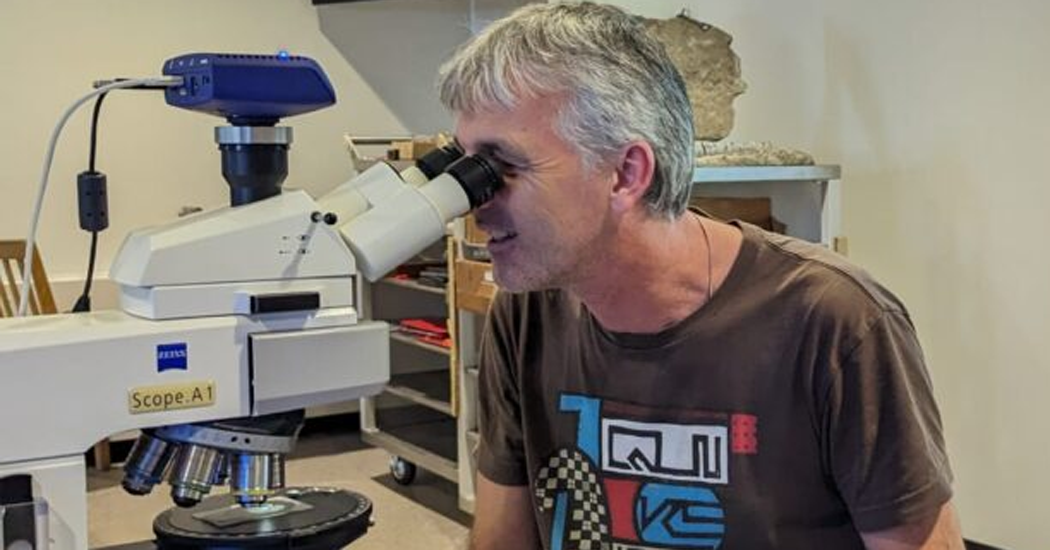A new publication by a Ulster University research consortium has once again found that internal sulphate attack (ISA) is causing the deterioration of homes built with defective blocks.
The research team was selected by the Geological Survey of Ireland, commissioning on behalf of the government, to investigate the causes of defective concrete failure in Donegal homes.
The consortium’s new publication has been accepted for the International Conference on Sulphide Reactions in Concrete, at Université Laval Canada, May 14-17 2024. In the paper, they share evidence that pyrrhotite oxidisation and internal sulphate attack (ISA) were clearly identified as the primary process causing the observed damages in the investigated homes.
In addition to the ISA, the research also confirmed the presence of high quantities of muscovite mica in the concrete, which is known to create poor quality porous concrete.
Internal sulphate attack occurs when pyrrhotite in the concrete oxidises when it comes into contact with oxygen and moisture. It first rusts causing it to swell and releases sulphur. This creates sulphuric acid which reacts with the concrete to form secondary sulphate minerals called ettringite, thaumasite and gypsum that cause the concrete to swell, crack and lose strength.
The authors of the latest paper are Dr Andreas Leeman and Dr Beat Münch of Empa’s Laboratory for Concrete & Asphalt, Switzerland, and Professor Paul Dunlop, School of Geography and Environmental Sciences, Ulster University.
Researchers previously conducted ground-breaking independent research in March 2023 providing the first independent scientific evidence that ISA resulting from oxidisation of pyrrhotite in the concrete is the primary cause of the deterioration of the homes in Donegal and not mica freeze/thaw processes. This has subsequently been confirmed by a paper from researchers from Petrolab UK in the international peer review journal Construction and Building Materials in October 2023.
The commissioned research is based on a detailed investigation of four homes from different locations in the county – three known to be affected by defective concrete and a control home that is not affected.
Lisa Hone, Chairperson of MAG welcomed the latest publication and said, “Rigorous science must underpin any DCB Scheme to ensure that the recommended remediation eliminates this issue for the homeowners. The research findings published by the Ulster University consortium reaffirm the conclusions of previous independent investigations – the primary cause of the deterioration of our homes is due to internal sulphate attack as a result of unregulated quantities of iron sulphides, primarily pyrrhotite present in the aggregate. Iron sulphides are a known risk to concrete.
“Had the State ensured an effective system of regulatory governance and market surveillance this horrendous situation affecting thousands of homes would never been allowed to develop.
“Given the scheme is already live, it is imperative that the Dept. of Housing ensure results received from all research partners are publicly available. Scientific evidence from other independent research together with the findings of this paper necessitate immediate action with regard to remediation recommended for Donegal homes, the inclusion of foundations and a root and branch review of IS465.”
The latest conference paper can be accessed here: https://pure.ulster.ac.uk/en/publications/effect-of-exposure-conditions-and-concrete-quality-on-pyrrhotite-








